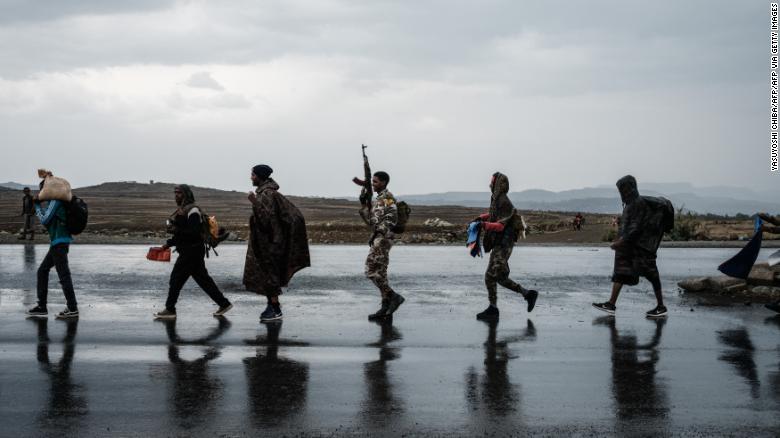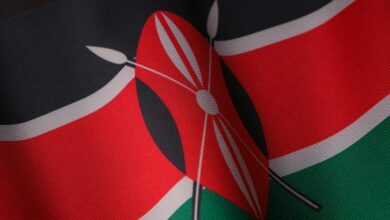
The crimes are said to have happened between October of 2022 and January this year, during an ongoing conflict between Tigrayan forces and the federal Ethiopian government and its allies, including the Eritrean Defense Forces (EDF), which has left thousands dead since it began in 2020.
The 46-page report details abuses such as the rape and sexual enslavement of women, who it says were “subjected to physical and psychological abuse and deprivation of food, water, and medical services,” as well as the extrajudicial execution of civilians during house-to-house searches.
Tigray is one of 11 administrative regions in Ethiopia, Africa’s second-most populous country. Each region is mostly autonomous, with its own police force and militia. Regional governments are largely divided along entrenched ethnic lines, and long-standing tensions between regions have led to ethno-nationalist clashes.
Amnesty’s new findings focus on the Kokob Tsibah and Mariam Shewito districts, which remained under the EDF’s control until 19 January 2023. CNN reached out to the Ethiopian National Defense Force, Eritrean information ministry and Ethiopian foreign ministry for comment on Amnesty’s findings but did not receive a response at the time of writing.
A 2021 CNN investigation uncovered evidence of the torture, mass detention and execution of residents in the town of Humera in the Tigray region. Bodies were found bound with electrical wire, some missing limbs or showing signs of suffering intense violence. Eyewitnesses and forensic experts described victims being tortured, executed, and piled on top of each other. The Ethiopian government responded to CNN’s findings via an American public relations firm saying they would be working with the relevant authorities to investigate and hold those that they find responsible to account.
Within the Amnesty report released on Tuesday, a social worker says that a total of 160 sexual violence cases were reported in Kokob Tsibah between November 2020 and January 2023. A medical expert cited in the report says “their center has handled 2250 cases of conflict-related sexual violence” from parts of the Eastern Tigray Zone, including Kokob Tsibah, in the same period.
Victims said that they could identify the perpetrators through their uniforms, the Tigrinya dialect, and the use of racial slurs. According to Amnesty International, survivors said that EDF soldiers frequently asked them “‘Weren’t you chanting that Tigray will win?’” The report suggests that women were held “on suspicion that their spouses, sons, or relatives were in the Tigrayan forces.”
Amnesty International’s report also found evidence of the killings of 23 men and one woman in Kokob Tsibah district between November 2022 and January 2023. Many of these executions were reported to be at close range. The victims are reported to have been aged between 40 and 90 years old. One victim, a 70-year-old priest, was allegedly shot and killed while seeking refuge inside a church.
Due to the violence taking place in the district, many victims’ families described being unable to bury their loved ones for long periods of time after their deaths. One woman told Amnesty International that “her husband’s body remained at the place where he was killed for three months.”
Extrajudicial executions are also reported to have taken place in Mariam Shewito district. Amnesty International cites a social worker who it says, “provided a list of more than 100 names of people who they said had been extrajudicially executed within this period,” though it could not independently corroborate all of these cases. Witnesses and family members of the victims “declared that victims were civilians, most actually farmers,” the report said.
“Communities in Kokob Tsibah and Mariam Shewito have had their lives changed, irreversibly, by the violations they experienced at the hands of the EDF,” Amnesty International said.
One survivor is quoted in the report as saying: “Humans were treated like animals throughout this conflict.”
“Our sons should not die because of a war as well. Let this be the last war,” they continued.




